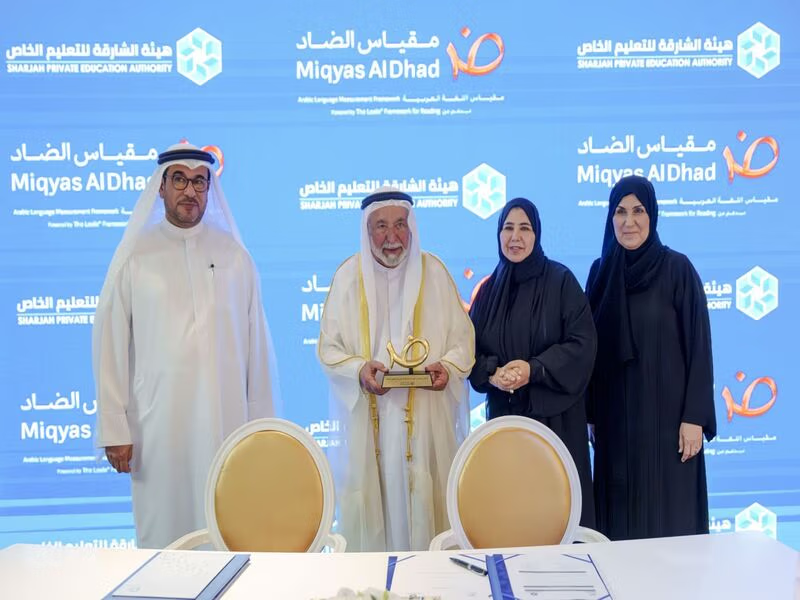His Highness Sheikh Dr. Sultan bin Mohammed Al Qasimi, Supreme Council Member and Ruler of Sharjah, oversaw the signing today of three Memoranda of Understanding (MoUs) designed to support the educational system, empower teaching staff, and enhance overall education quality. The signing ceremony was held at the Sharjah Council for Higher Education and Scientific Research (SCHESR) in University City.
The first MoU was inked between the Sharjah Education Academy, represented by Dr. Muhadditha Yahya Al Hashimi, President of SEA, and Rashid Abdullah Al Obad, Director-General of Sharjah Media City (Shams). This agreement aims to advance the emirate’s goal of developing a progressive educational system by empowering teaching staff and improving education quality through specialised scholarships for master’s programmes in leadership and educational development. The initiative seeks to cultivate a generation of academic leaders capable of making a lasting and meaningful impact on the education sector.
The second MoU was signed between the Sharjah Private Education Authority, represented by Ali Ahmed Al Hosani, Director-General, and the ZAI Arabic Language Research Centre at Zayed University, represented by Dr. Michael Allen, Acting President. This partnership focuses on leveraging the expertise of both organisations to strengthen and develop the educational sector, enhance students’ Arabic language proficiency, and foster pride and appreciation for Arabic within the academic community, thereby raising standards in research and development.
The third MoU was concluded between the Sharjah Private Education Authority, represented by Ali Ahmed Al Hosani, and “Arabic Scale – Miqyas Al Dhad” Company, represented by Aisha Hassan Al Yamahi, Board Member.
The MoU formalises the adoption of the Al Dhad Scale as an accredited, standardised tool for measuring Arabic reading literacy. It aims to boost reading proficiency among Arabic-speaking students, increase awareness of Arab literary and cultural heritage among youth, and enhance students’ Arabic reading performance by applying the Al Dhad Scale’s standards and tools.
(Inputs from WAM)





